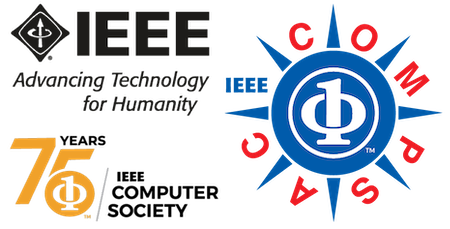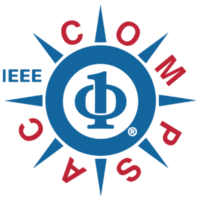The 15th IEEE International Workshop on Quality Oriented Reuse of Software (QUORS 2021)
Call for Papers
Software reuse has been one of the most effective paradigms for building software systems and applications for decades. Recently, the rapid and fundamental advances in computing technologies have been driving the role and scope of software systems to new levels. A number of new types of software systems are emerging, among which microservice oriented systems, pervasive computing, cloud computing, AI-driven smart systems and big data applications are eminent examples. The advent of these emerging systems has raised the level of software reuse to services, large-scale components or agglomeration of components in more challenging context which is pervasive, service-oriented, AI-driven and trustworthy. Systematic and large-scale reuse of reusable assets at multiple development levels is improving the efficiency of software development activities significantly in terms of cost and time.
However, previous research in software reuse mainly focused on the functional aspect of a system, tended to ignore or treat the quality aspects trivially. Modern computing models tend to be globally distributed, ubiquitous, highly secure, intelligent and dynamically adaptive. These systems, such as smart/pervasive systems, cloud services, microservice-based systems and big data applications, have imposed more rigorous quality requirements on software reuse technologies. Today in the “smart IoT era”, it becomes a great challenge to meet the new requirements of emerging software systems and meanwhile enjoy the benefits of substantial software reuse.
Recently, the research community and industry have been aware of the above weakness and much work has been ongoing. In this workshop we wish to bring together researchers and practitioners to share latest research results, advances and practical experiences under the banner of “Quality Oriented Reuse of Software for Emerging Software Systems in IoT and AI Era”. The workshop will act as a forum for active discussion, idea stimulation and communication.
The workshop will bring together researchers and developers from academia and industry for advancing the methodology and technology of software reuse which emphasizes meeting strict quality requirements, such as dependability, agility, security and performance, particularly in the context of emerging types of software systems. The workshop seeks new approaches, system architectures and tools that facilitate the quality aspects of software reuse technologies.
Topics of interest include, but are not limited to:
- IoT-based pervasive systems;
- Microservices and reuse;
- AI-driven smart systems;
- Machine learning based software engineering
- Architecture and models for Big Data applications;
- Architecture and models for IoT applications;
- Trustworthiness and security models
- Trustworthy software reuse methods;
- Dependable component-based systems;
- Software product lines;
- Quality aspects of design patterns;
- Software evolution;
- Software quality metrics and testing;
- Model-driven software engineering;
- Component and service repository;
- Service Oriented Architecture;
- Cloud computing services: SaaS, PaaS and IaaS;
- Quality of clouds services;
- Reuse in safety critical systems;
- Reuse in service and component based Enterprise Systems;
- Reuse in embedded software systems;
- Open source software reuse;
- Case studies and experience reports.
Important Dates
Workshop papers due: 21 April 1 May 2021 (UPDATED)
Workshop paper notifications: 15 May 2021
Camera-ready and registration due: 31 May 2021
Authors are invited to submit original, unpublished research work, as well as industrial practice reports. Simultaneous submission to other publication venues is not permitted. In accordance with IEEE policy, submitted manuscripts will be checked for plagiarism. Instances of alleged misconduct will be handled according to the IEEE Publication Services and Product Board Operations Manual.
Please note that in order to ensure the fairness of the review process, COMPSAC follows the double-blind review procedure. Therefore we kindly ask authors to remove their names, affiliations and contacts from the header of their papers in the review version. Please also redact all references to authors’ names, affiliations or prior works from the paper when submitting papers for review. Once accepted, authors can then include their names, affiliations and contacts in the camera-ready revision of the paper, and put the references to their prior works back.
Formatting
Workshop papers are limited to 6 pages. Page limits are inclusive of tables, figures, appendices, and references. Workshop papers can add an additional 2 pages with additional page charges ($250USD/page).
Paper Templates
IEEE Paper templates are available in MS Word 2003 and LaTex. All submissions must use US 8.5×11 letter page format.
Note: If the submission link does not appear on EasyChair after logging-in, please click the above button again.
Workshop Organizers
Xiaodong Liu, Edinburgh Napier University, UK
Email: x.liu@napier.ac.uk
Hongji Yang, Leicester University, UK
Email: hongji.yang@leicester.ac.uk
Program Committee
Oluwaseun Bamgboye, Edinburgh Napier University, UK
David Bell, Brunel University, UK
Laizhong Cui, Shenzhen University, China
Qing Duan, Yunnan University, China
Marcelo Fantinato, University of Sao Paulo, Brazil
João M. Fernandes, University of do Minho, Portugal
Barbara Gallina, Mälardalen University, Sweden
Pooyan Jamshidi, South Carolina University, USA
George Kakarontzas, University of Thessaly, Greece
Soo Dong Kim, Soongsil University, Korea
Hua Li, Inner Mongolia University, China
Jingyue Li, Norwegian University of Science and Technology, Norway
Xiaodong Liu, Edinburgh Napier University, UK
Qi Liu, Edinburgh Napier University, UK
Richard Millham, University of Bahamas/ Durban University of Technology, Bahamas
Pornsiri Muenchaisri, Chulalongkorn University, Thailand
Dr.Vo Ngoc Phu, Duy Tan University and Nguyen Tat Thanh University, Viet Nam
Salah Sadou, University of South Brittany, France
Francois Siewe, De Montfort University, UK
Yingchun Tian, Changzhou University, China
Guifa Teng, Hebei Agriculture University, China
Emiliano Tramontana, Universit`a di Catania, Italy
Hongwei Wang, Zhejiang University, China
Huaiguang Wu, Zhengzhou University of Light Industry, China
Hongji Yang, Bath Spa University, UK
Kevin Yang, Chinese Academy of Science, China
Lu Zhang, Beijing Union University, China
Wei Zheng, Northwest Polytechnic University, China
Shikun Zhou, Portsmouth University, UK

